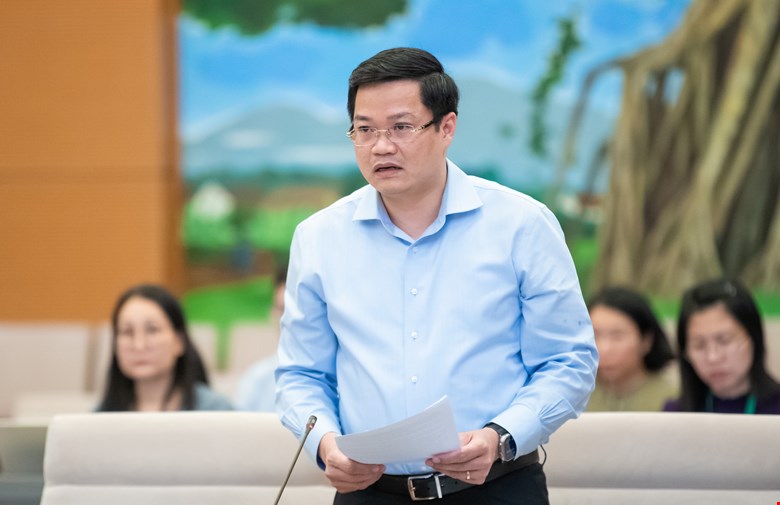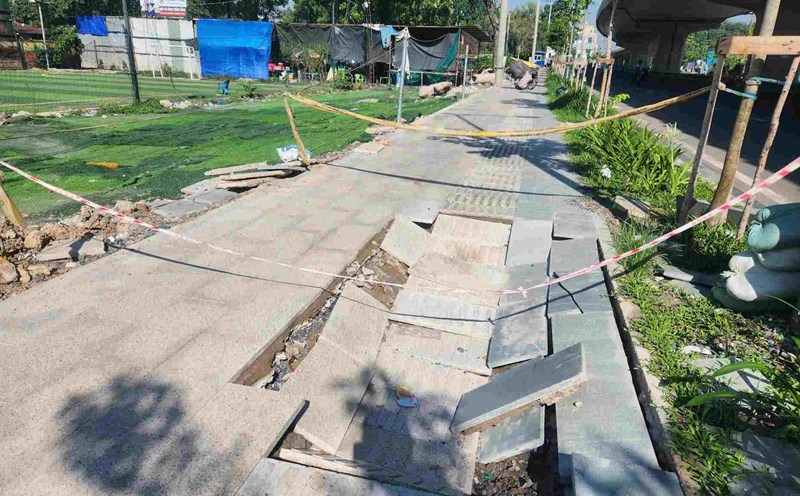Continuing the 45th session, on the afternoon of May 14, the National Assembly Standing Committee gave opinions on the draft Resolution of the National Assembly on a number of special mechanisms and policies for private economic development.
At the meeting, Deputy Minister of Finance Nguyen Duc Tam briefly presented the proposal.
The report clearly states that ensuring the full and timely institutionalization of policies, viewpoints, mechanisms and policies in Resolution No. 68-NQ/TW is of outstanding nature, removing bottlenecks in private economic development; can be deployed, applied and promoted effectively in practice.
Stipulate special mechanisms and policies for private economic development to mobilize the diversification of resources and free up social resources to focus on rapid development of socio-economic infrastructure, meeting the requirements of double-digit economic growth in the next period.
The draft also clearly states the principles of inspection, examination, licensing, and certification activities for enterprises, business households, and individual businesses.
This is to improve the effectiveness of inspection and examination work, overcome the situation of overlapping and overlapping inspections, overlapping, and strongly shifting from pre-inspection to post-inspection.

Accordingly, each enterprise and business household must not be inspected or examined more than once a year, except in cases where there is clear evidence of violation.
Strictly handle acts of abusing inspection and examination to harass and cause difficulties for businesses. Prioritize remote inspection and testing based on electronic data, reduce direct inspection and testing.
Free on-site inspection of enterprises that comply with legal regulations.
Transfer the management of business conditions from licensing and certification to announcing business conditions and post-inspection, except for a few areas where licensing procedures are required according to international regulations and practices.
The draft also clearly defines between the responsibilities of legal entities and the responsibilities of individuals; between criminal responsibility with administrative responsibility, civil liability; between administrative responsibility with civil liability.
For violations and incidents related to civil and economic matters, priority should be given to applying civil, economic and administrative measures first; enterprises, business households and individuals must proactively overcome violations and damages. In cases where the practical application of the law may lead to criminal proceedings or not criminal proceedings, criminal proceedings will not be applied.
For violations that are beyond criminal prosecution, priority will be given to proactive, timely and comprehensive remedial measures and will be an important basis for the prosecution agency to consider when deciding to prosecute, investigate, prosecute, try and subsequent handling measures.
Do not apply legal regulations to handle disadvantages for businesses, business households, and individuals.
For cases where information, documents, and evidence are not clear enough to conclude a violation of the law, there must be a conclusion promptly according to the provisions of the law on litigation, and this conclusion must be publicly announced.
Ensure the principle of presumption of innocence in the process of investigating, prosecuting, and trying cases.











